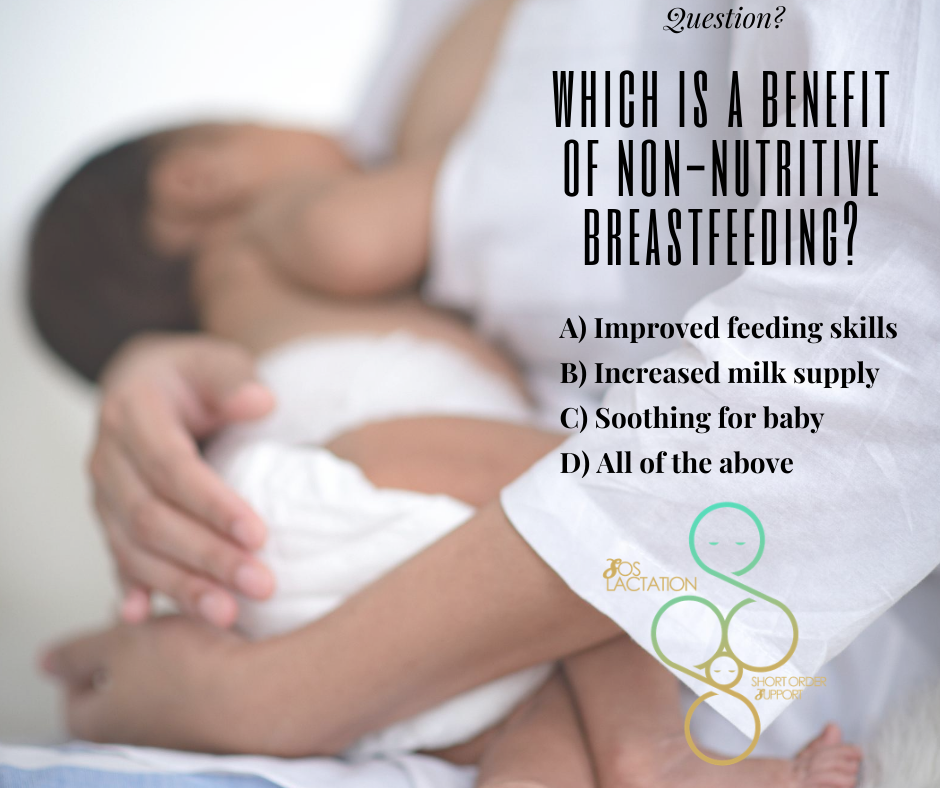Which are benefits to nonnutritive breastfeeding? The answer is D: All the Above.
Babies experience an array of emotions just as adults do, however they are unable to articulate these feelings. Babies cannot express what they are feeling as clearly as adults can, but they do have way of managing and expressing their feelings toward us.
Over the years, the more time I spend with babies, the more I notice different expressions, subtle gestures and the wide diversity of personalities. No two babies are the same. When babies are uncomfortable, they need ways of soothing and feeling better. Babies are born with a very strong desire to suck. All this sucking is meant to happen on the breast, which stimulates full breast development and a full milk supply. When babies suck, they discover its soothing effects. This becomes a way of dealing with discomfort. Imagine being a newborn and coming out into the world. For the first time you will experience cold, hunger, pain, overstimulation, and thirst, just to name a few of the new and uncomfortable sensations’ babies are introduced to when outside of the womb.
When a baby latches onto their mother they hear the familiar voice, one they have been listing to from the beginning. They feel the warmth of your body, experience the familiar smell of the oil on the areola just like that of the amniotic fluid they were surrounded in. They feel the thump of your heartbeat, and although they cannot see far away, when latched they can see their mother’s face with clarity. Then they suck, which adds another level of calmness.
Nonnutritive sucking is not only beneficial for baby’s overall wellbeing, but it is beneficial for mothers also. Nonnutritive sucking can help increase milk supply, improve a baby’s sucking skills and facilitate a healthy long-lasting breastfeeding relationship. The next time your baby wants to latch, and you know they are not hungry, remember all the benefits that come with it.

